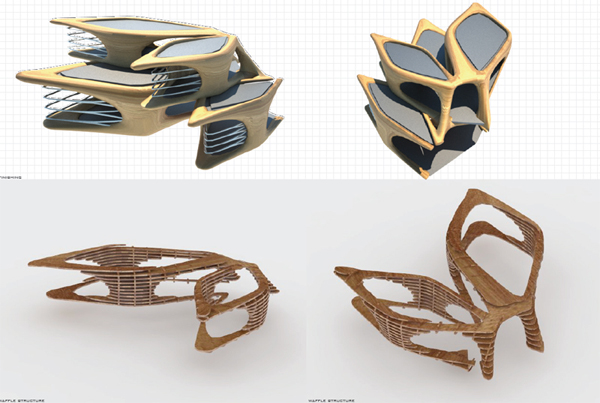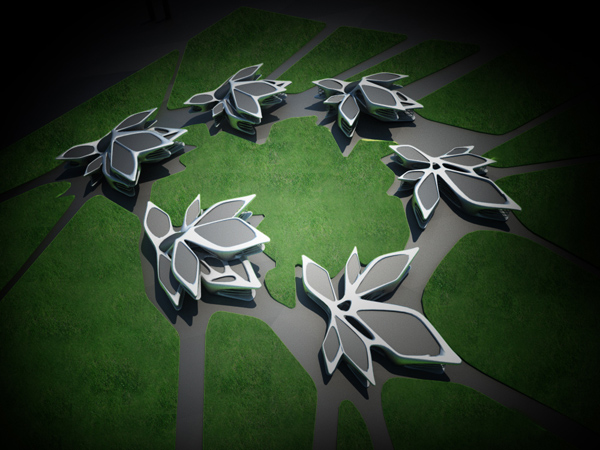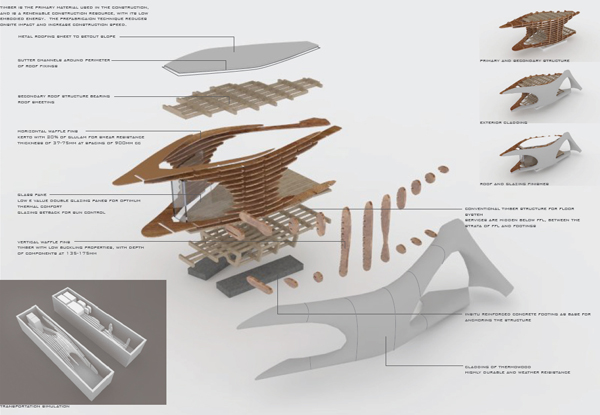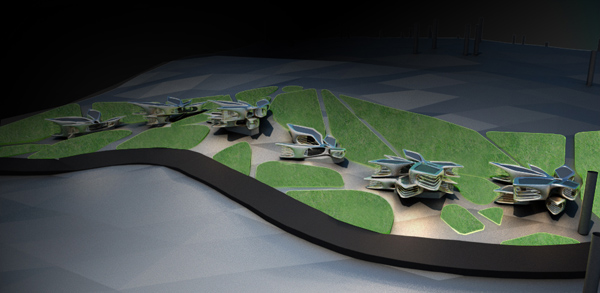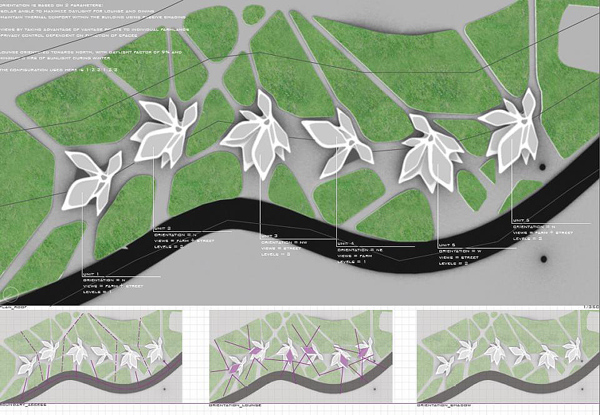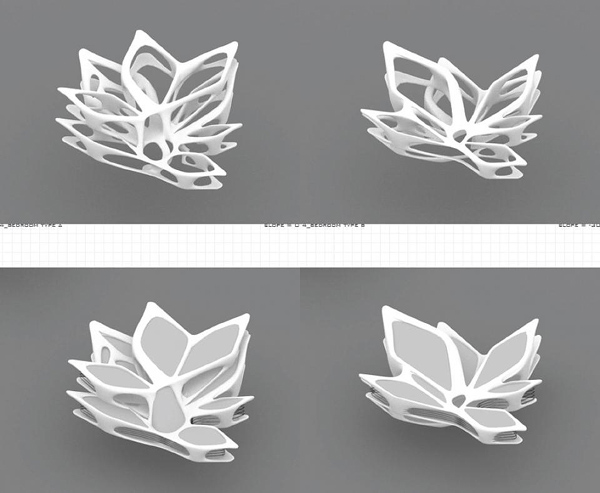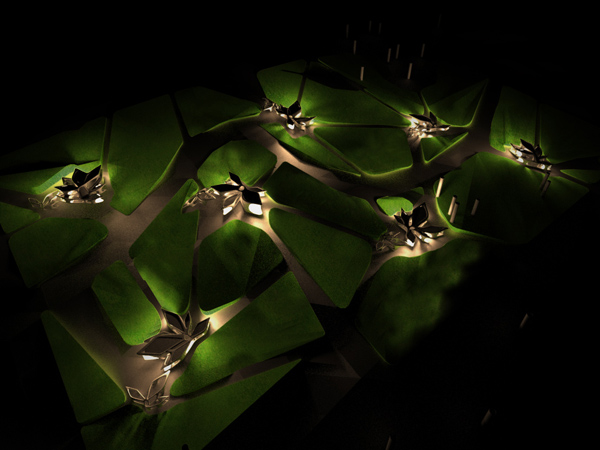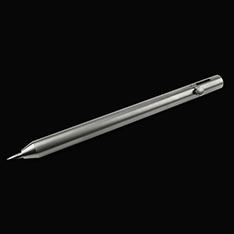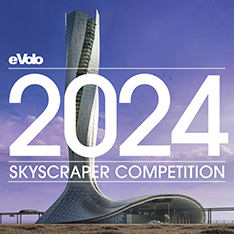The design is part of student digital architecture research at The University of Sydney. The aim is to investigate digital design and fabrication techniques through composite strategies specific to environment and location. The work focuses primarily on pre-fabrication and kit assemblage of individual dwellings through digitally fabricated timber construction methods. Through the investigation of parametric design and fabrication, students looked at implementing these alternative advanced geometries and organizational strategies for a more architectural response: housing units.
Designed by Huan Miao Khoo, the assemblages of superimposed leaf-like housing units use timber prefabrication methods for achieving organizational and geometric flexibility. The idea investigates the use of parametric design for form-finding and fabrication techniques that are specific to an environment and location. From various parametric methodologies including stacking, aggregation, bundling technique is chosen. Bundling implies a series of uniform elements such as string or sticks that are deformed to create intersecting nodes. As a result, the geometry and typology changes through different intensities of convergence and divergence. The entire process is governed by a predetermined set of parameters, and with the application of algorithms and functions interesting forms and spaces are generated. As prefab construction method employs off-site fabrication and assembly, there is a significantly reduced impact on the site with regard to disturbance, run-off and waste. From required building material, up to thirty to forty percent of material waste generated from conventional building ends up in landfill, compared to as little as two percent waste achieved through prefabrication methods.

